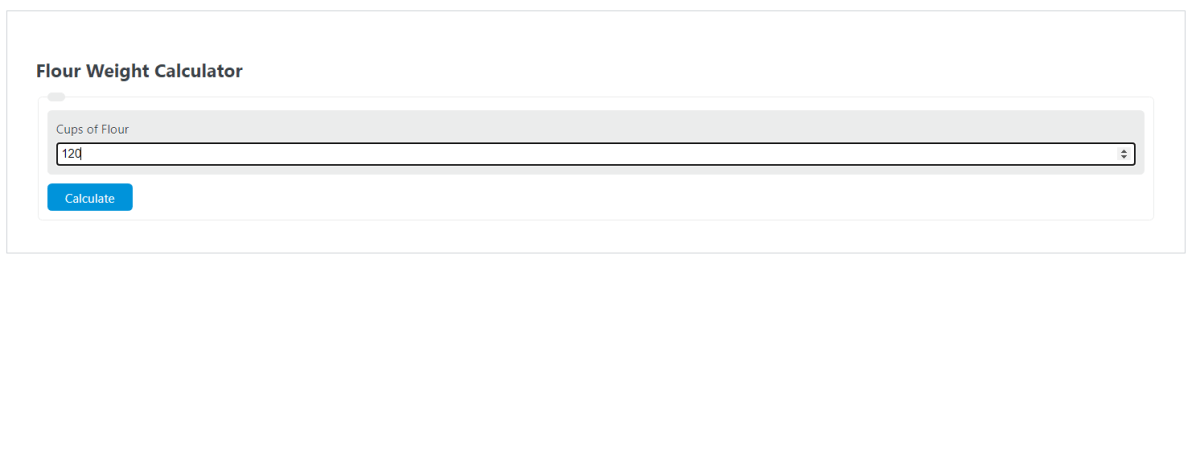Enter the total number of cups of flour used in the recipe into the calculator to determine the flour weight.
Flour Weight Formula
The following formula is used to calculate the total weight of flour used in a recipe.
FW = C * 120
- Where FW is the flour weight (grams)
- C is the number of cups of four
To calculate the flour weight, simply multiply the cubs of flour by 120.
What is the weight of 1 cup of flour?
One cup of all-purpose flour averages 120 grams of weight. One cup of almond flour has 96 grams of weight and pizza flour has 116 grams of weight.
How to calculate flour weight?
The following example outlines the steps required to calculate the weight of the flour used in a recipe.
First, determine the type of flour. In this example, the flour is standard all-purpose flour.
Next, determine the number of cups in the recipe. For this problem, there are 5 cups of flour.
Finally, calculate the flour weight using the formula:
FW = C * 120
FW = 5 * 120
FW = 600 grams
FAQ
1. Can I use the flour weight formula for any type of flour?
Yes, the flour weight formula can be used for any type of flour, but it’s important to adjust the weight per cup according to the type of flour you are using. For example, almond flour weighs 96 grams per cup, while all-purpose flour weighs 120 grams per cup.
2. How does the type of flour affect the outcome of a recipe?
The type of flour can significantly affect the texture, structure, and flavor of the final product. For instance, all-purpose flour is versatile and can be used for a wide range of baked goods, while almond flour, being gluten-free, provides a different texture and flavor, making it suitable for specific dietary needs.
3. Why is it important to accurately measure flour weight in baking?
Accurate measurement of flour weight is crucial in baking because it ensures consistency in the recipe’s outcome. Even small deviations in flour quantity can lead to significant differences in texture, structure, and taste of the baked goods. Using weight measurements rather than volume measurements (like cups) provides more precision and reliability.
